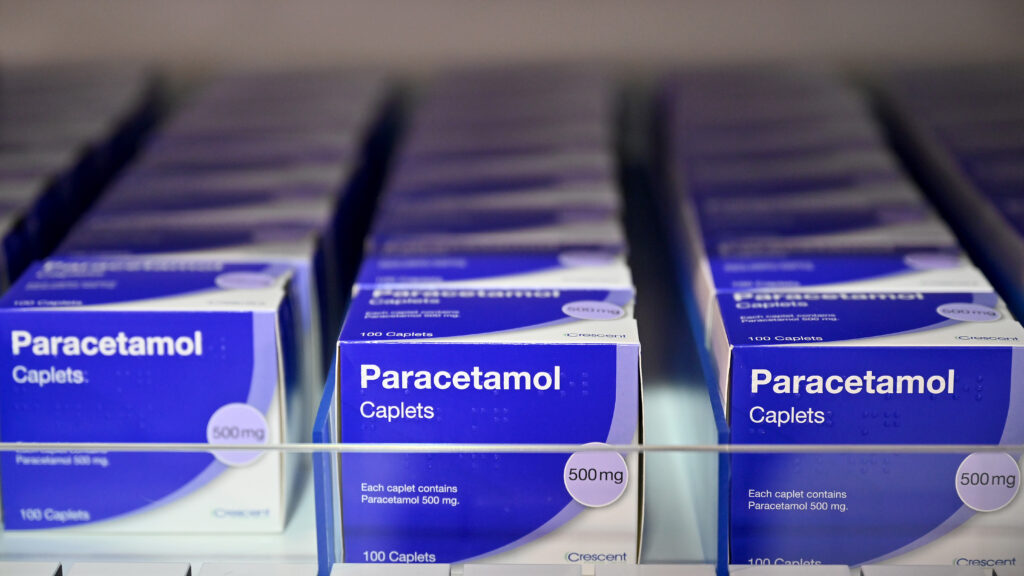
LONDON — Regulators in Europe have issued new statements backing the safety of Tylenol use in pregnancy, effectively repudiating claims from the Trump administration that the medicine can cause autism in children.
The statements from health authorities in the U.K. and European Union do not mention the move by the U.S. on Monday to warn about the use of acetaminophen (the active ingredient in Tylenol) in pregnancy, but their publications reflect fears from experts that President Trump’s assertions could cause unnecessary confusion for families.
Advertisement
Acetaminophen is a safe way to address pain and fever in pregnancy, conditions that on their own can be dangerous to developing babies if left untreated, the agencies said, stressing that their recommendations had not changed.
“Paracetamol remains an important option to treat pain or fever in pregnant women,” Steffen Thirstrup, the chief medical officer at the European Medicines Agency, said in a statement. (Acetaminophen is known as paracetamol in Europe.) “Our advice is based on a rigorous assessment of the available scientific data and we have found no evidence that taking paracetamol during pregnancy causes autism in children.”
Alison Cave, the chief safety officer at the U.K.’s Medicines and Healthcare products Regulatory Agency, expressed a similar sentiment.
Advertisement
“Paracetamol remains the recommended pain relief option for pregnant women when used as directed,” she said, noting that MHRA would review any new evidence that emerged about possible connections between the use of the medicine and birth outcomes.
Both the MHRA and EMA say that paracetamol, like any drug, should be used at the lowest dose and for the shortest duration to help pregnant women address pain.
While there is some disagreement among experts about the potential risks of Tylenol in pregnancy, most researchers who have looked at the question do not think the evidence shows that there is a link between the two.
Notably, communications issued Monday by U.S. health agencies struck a fairly cautious tone. The Food and Drug Administration, for instance, announced that it was moving to change the label for acetaminophen to say that use during pregnancy may be associated with an increased risk of neurological conditions in children. But the agency added: “It is important to note that while an association between acetaminophen and neurological conditions has been described in many studies, a causal relationship has not been established and there are contrary studies in the scientific literature.”
But Trump, in a news conference from the White House, went far beyond that, effectively condemning the use of Tylenol in comments that also veered into false attacks on pediatric vaccines.
“I want to say it like it is — don’t take Tylenol,” Trump said. “Don’t take it. Fight like hell not to take it.” He added that pregnant women should “tough it out,” though he said perhaps there was a point at which they would have to take it.
Trump administration officials had vowed to come up with explanations for why rates of autism diagnoses have been rising, which experts attribute at least in part to greater awareness and broader definitions. Experts also say the causes of autism are likely a complex mix of genetics and environmental factors.



